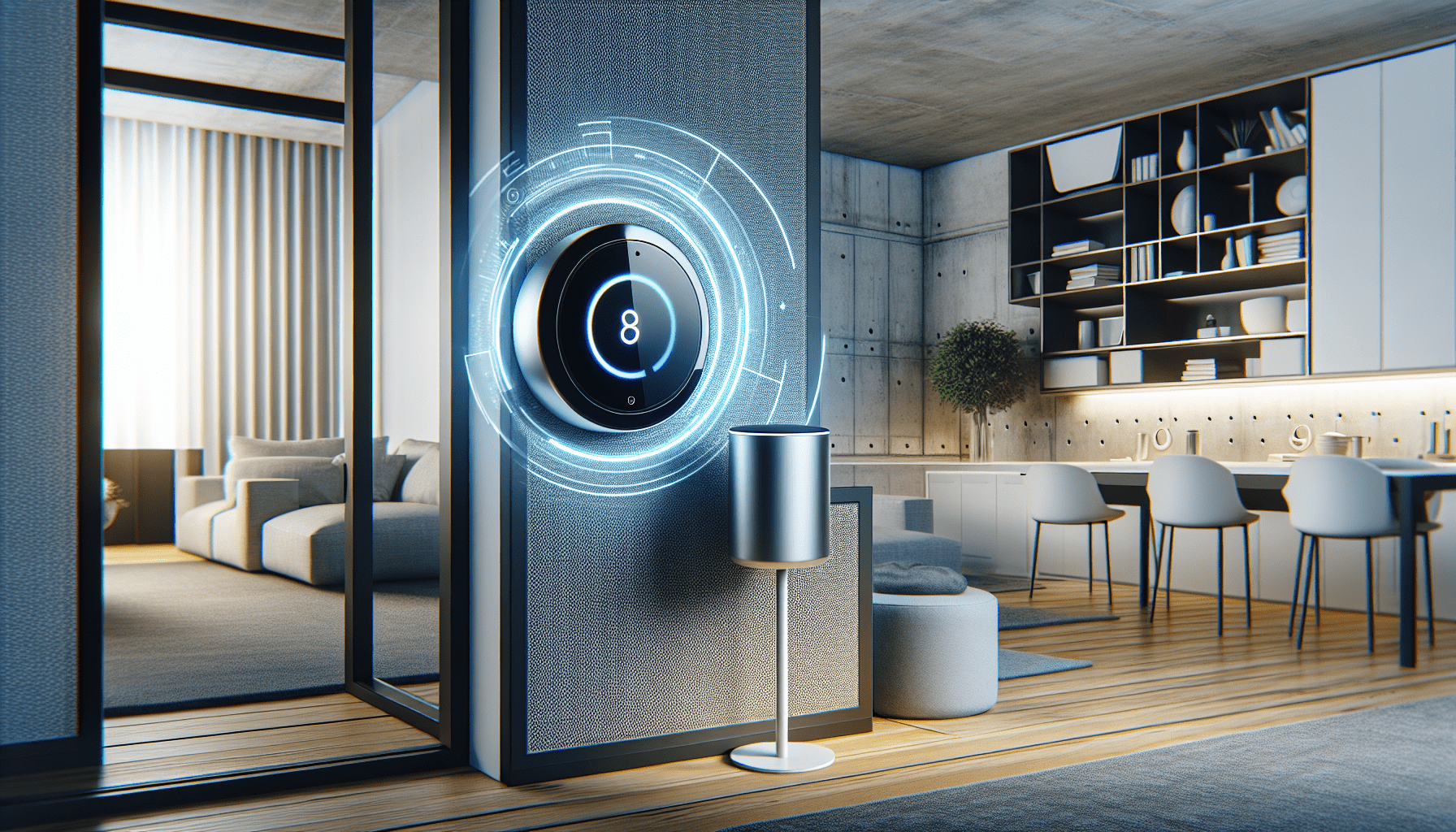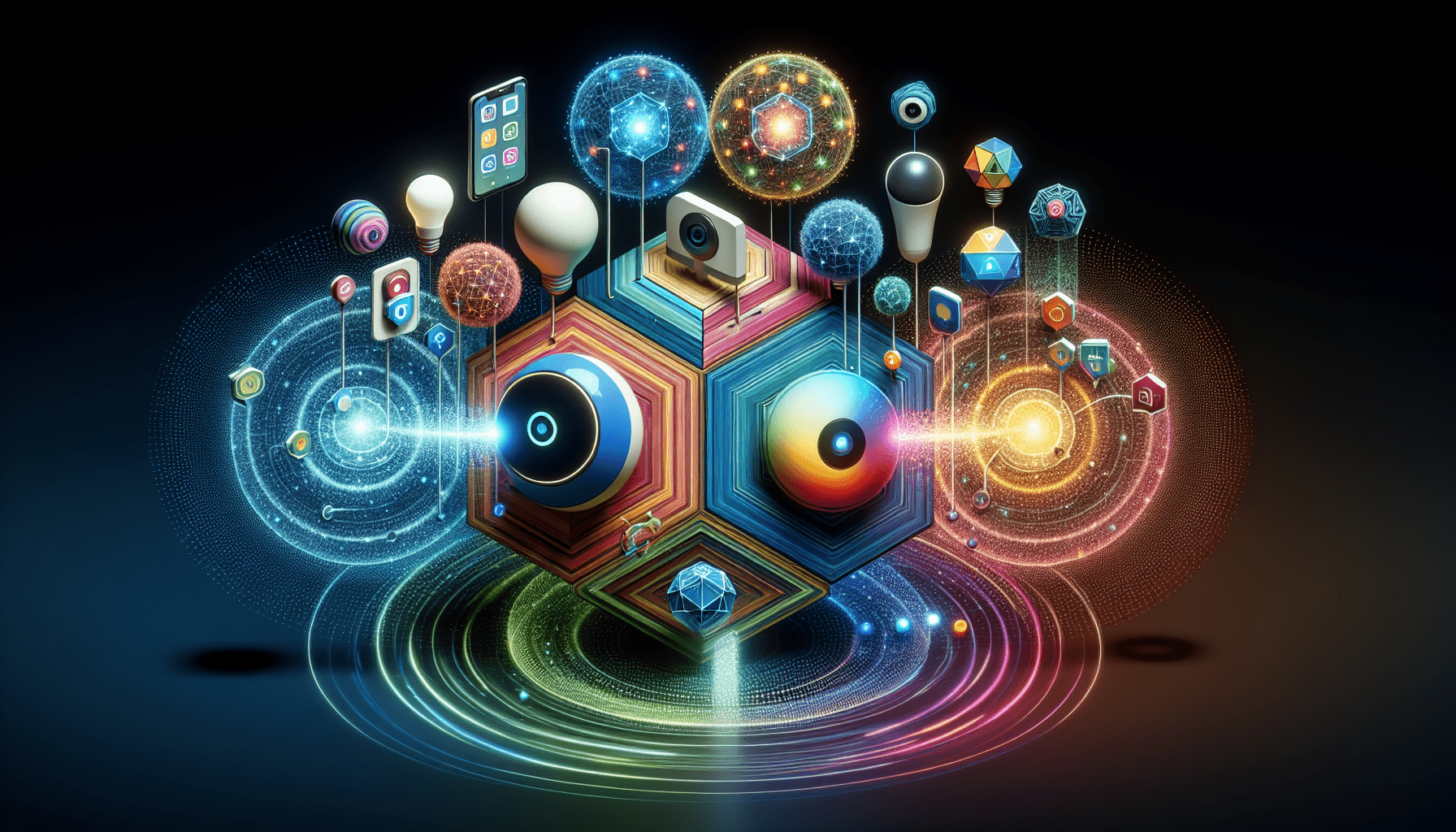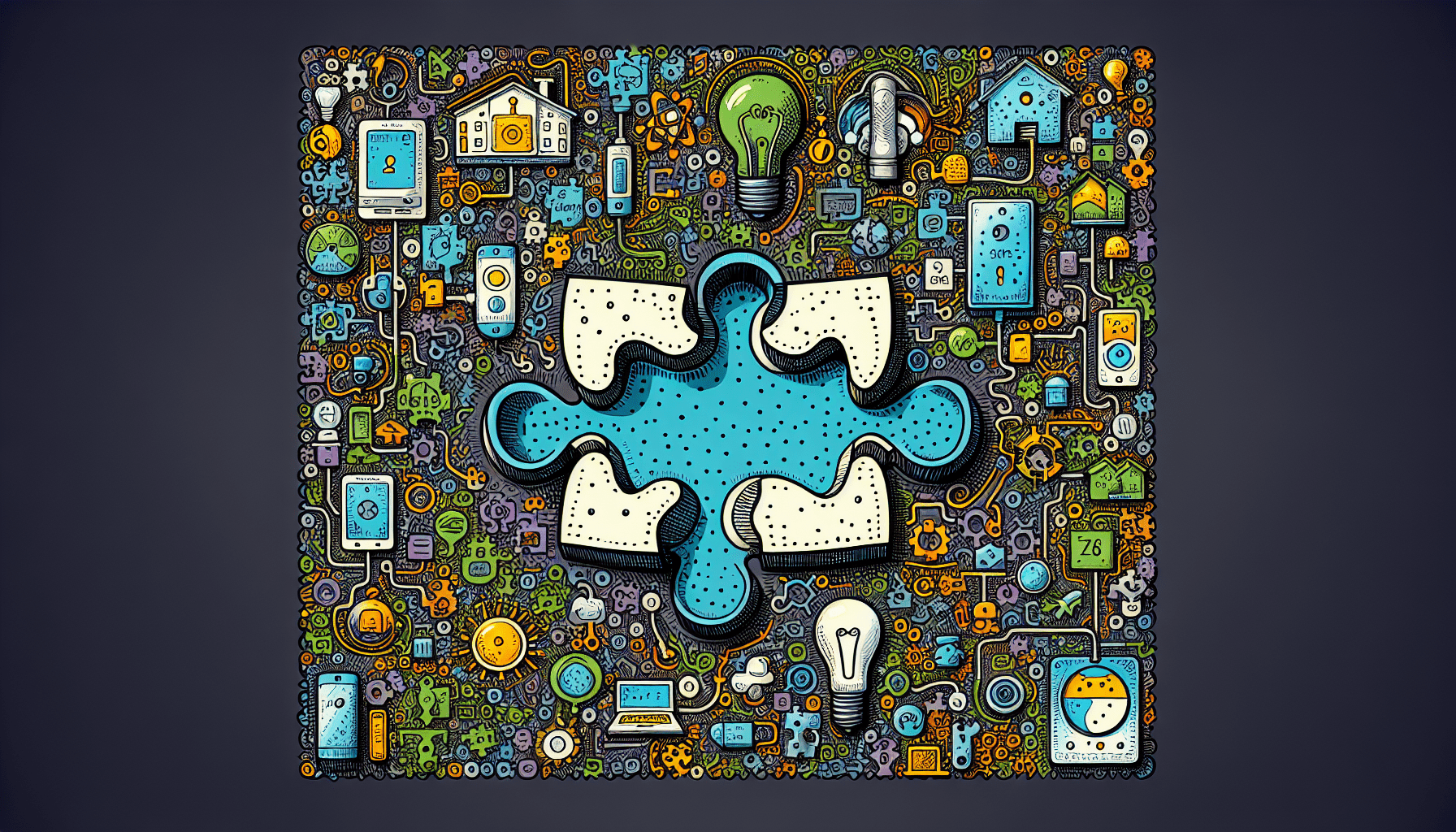Imagine a world where your home is not just a place to live, but a smart and intuitive environment that caters to your every need. From controlling the lights with a simple voice command, to having your morning coffee ready before you even step out of bed, the possibilities seem endless. With rapid advancements in technology, the future of smart home technology is quickly being realized. In this article, we will explore the exciting developments in this field and discuss how it is transforming the way we live and interact with our homes. Prepare to be amazed and inspired by the possibilities that lie ahead.
Integration with AI and Voice Assistants
Improved voice recognition
Voice recognition technology has made significant advancements in recent years, paving the way for seamless integration with artificial intelligence (AI) and voice assistants. The accuracy and reliability of voice recognition systems have greatly improved, allowing for more efficient and natural interactions between users and their smart home devices. With improved voice recognition, you can now effortlessly control various aspects of your home – from adjusting the temperature to dimming the lights – simply by speaking commands aloud.
Personalized recommendations and automation
Integration with AI and voice assistants allows for personalized recommendations and automation in your smart home. By analyzing your preferences and behavior patterns, AI algorithms can learn and predict your needs, automatically adjusting your home settings to enhance your comfort and convenience. For example, an AI-powered voice assistant can learn your preferred lighting and temperature settings in each room and automatically adjust them throughout the day to optimize energy usage while ensuring your comfort.
Enhanced user experience
The integration of AI and voice assistants in smart home technology aims to improve the overall user experience. With natural language processing capabilities, voice assistants can understand and respond to complex commands, making interactions with your smart home feel more intuitive and seamless. Moreover, AI-powered systems can learn and adapt to your preferences and habits over time, creating personalized and tailored experiences within your home. This enhanced user experience further solidifies the future of smart home technology as a convenient and efficient solution for modern living.
Expansion of Internet of Things (IoT)
Increased number of connected devices
The future of smart home technology will witness a significant increase in the number of connected devices. As the Internet of Things (IoT) continues to expand, your home will become a network of interconnected devices and appliances that can communicate with one another. From smart thermostats and security cameras to refrigerators and washing machines, these connected devices will work together to provide you with a seamless and integrated living experience. The increased number of connected devices will enable more comprehensive and efficient control over various aspects of your home.
Interoperability and seamless communication
With the expansion of IoT in smart home technology, the focus is also on achieving interoperability and seamless communication between different devices and platforms. In the future, smart home devices from different manufacturers will be able to seamlessly communicate and collaborate with one another, regardless of their brand or operating system. This interoperability will ensure that you have the freedom to choose the devices and platforms that suit your needs best, without worrying about compatibility issues or lock-in to a specific ecosystem.
Improved data security and privacy
As the number of connected devices in smart homes increases, ensuring data security and privacy becomes a critical concern. In the future, smart home technology will place a greater emphasis on robust security measures to protect your personal data and ensure the privacy of your interactions within your home. Encryption and authentication protocols will be implemented to safeguard the transmission and storage of sensitive information, while user-centric privacy settings will provide you with control over the data collected and shared by your smart home devices.
Advancements in Energy Management
Smart grids and energy optimization
The integration of smart home technology with energy management systems will revolutionize the way we consume and manage energy in our homes. Smart grids will enable real-time monitoring and optimization of energy usage, allowing you to track and control your energy consumption more effectively. By analyzing data from smart home devices, energy management systems can identify patterns and make intelligent decisions to optimize energy usage. For instance, your smart home may automatically adjust the temperature or turn off non-essential appliances when your energy consumption exceeds a certain threshold.
Renewable energy integration
The future of smart home technology will see a greater integration of renewable energy sources, such as solar panels and wind turbines. With advancements in energy storage technology, homeowners will be able to generate and store their own renewable energy, reducing their reliance on the traditional grid and decreasing their carbon footprint. Smart home systems will intelligently manage and optimize the use of renewable energy, maximizing its benefits and ensuring a more sustainable and environmentally friendly energy supply.
Cost savings and environmental benefits
Smart home technology’s advancements in energy management will not only benefit the environment but also offer significant cost savings for homeowners. By optimizing energy usage and integrating renewable energy sources, you can reduce your energy bills and potentially even generate revenue by selling excess energy back to the grid. Additionally, the more efficient management of energy resources will contribute to the overall reduction of greenhouse gas emissions, promoting a cleaner and greener environment for future generations.
Enhanced Home Security Systems
Advanced surveillance technologies
The future of smart home technology will introduce advanced surveillance technologies to enhance home security. These technologies will include high-definition security cameras with improved video analytics capabilities, enabling more accurate detection of intruders or suspicious activities. Additionally, surveillance systems will incorporate machine learning algorithms to learn and recognize normal patterns of behavior within your home, allowing for more effective and reliable detection of anomalies or potential threats.
Facial recognition and biometric authentication
Smart home security systems will also utilize facial recognition and biometric authentication technologies to enhance access control and identity verification. Facial recognition algorithms will enable your smart home to identify authorized individuals and automatically grant them access, while detecting and alerting you of unauthorized individuals. Biometric authentication methods like fingerprint or voice recognition will further enhance security, ensuring that only authorized individuals can access sensitive areas or control certain smart home features.
Smart locks and automated alarms
The integration of smart locks and automated alarms will provide an added layer of security and convenience for homeowners. Smart locks eliminate the need for traditional keys, allowing you to remotely control and monitor access to your home. You can grant temporary access codes to visitors, receive notifications when doors are unlocked or locked, and even control access to specific areas of your home. Automated alarms will work in conjunction with surveillance systems to trigger alerts and notifications in case of any suspicious activities, providing you with peace of mind and an enhanced sense of security.
Health and Wellness Monitoring
Remote health monitoring devices
The future of smart home technology will empower individuals to monitor their health and wellness from the comfort of their own homes. Remote health monitoring devices, such as wearable fitness trackers, blood pressure monitors, and sleep trackers, will seamlessly integrate with your smart home ecosystem. These devices will collect and analyze data about your health and wellness, providing you with valuable insights and enabling remote healthcare professionals to monitor your well-being and provide personalized recommendations.
Integration with wearable technology
Smart home technology will integrate with wearable devices to create a holistic approach to health and wellness monitoring. Wearable technology such as smartwatches and fitness bands can track your activity levels, heart rate, and sleep patterns, and transmit this data to your smart home system. The data collected from wearable devices can then be used to automate certain aspects of your home, such as adjusting lighting and temperature settings based on your sleep patterns or reminding you to take a break if you’ve been sedentary for too long.
Smart appliances for improved well-being
Smart home technology will also incorporate smart appliances designed to promote health and well-being. These appliances can include smart refrigerators that keep track of your food inventory and suggest healthy meal options based on your dietary preferences, as well as smart bathroom scales that track your weight and body composition and provide insights into your overall health. By integrating these smart appliances into your home, you can effortlessly incorporate healthy habits into your daily routine and achieve a more balanced and well-rounded lifestyle.
Automation and Efficiency in Household Chores
Smart cleaning appliances
The future of smart home technology will revolutionize household chores with the introduction of smart cleaning appliances. Robotic vacuum cleaners and mops equipped with AI vision and mapping capabilities will autonomously navigate and clean your home, saving you time and effort. These smart cleaning appliances will be able to detect and avoid obstacles, adapt to different floor types, and even learn your cleaning preferences over time to provide a more tailored cleaning experience.
Automated laundry systems
Smart home technology will bring automation and efficiency to laundry tasks with the introduction of automated laundry systems. These systems will include smart washing machines and dryers that can be remotely controlled and monitored, allowing you to start a load of laundry from anywhere and receive notifications when the cycle is complete. Additionally, these appliances will utilize advanced sensors to optimize water and energy usage, reducing waste and minimizing the environmental impact of your laundry routine.
Efficient cooking and meal preparation
The integration of smart home technology in the kitchen will streamline cooking and meal preparation processes. Smart ovens, refrigerators, and cooktops will work together to offer personalized cooking recommendations, adjust cooking settings based on the ingredients you have, and even suggest recipes based on your dietary preferences. Integration with voice assistants will further enhance the cooking experience, allowing you to control appliances and access recipe instructions hands-free. By automating and optimizing cooking and meal preparation tasks, smart home technology will simplify your kitchen routines and help you create delicious meals with ease.
Smart Entertainment and Media Integration
Voice-controlled entertainment systems
Smart home technology will transform the way we interact with entertainment systems through voice control. Integrated voice assistants will allow you to control your TV, speakers, and other entertainment devices using natural language commands. You can effortlessly search for and play your favorite shows, adjust the volume, and even dim the lights without having to fumble for a remote control. The integration of voice control in entertainment systems brings convenience and simplicity to your home entertainment experience.
Seamless streaming and content sharing
Smart home technology will enable seamless streaming and content sharing across different devices and platforms. Whether you’re watching a movie on your TV, pausing it, and resuming it on your tablet, or casting music from your phone to your speakers, smart home integration will ensure a seamless and uninterrupted entertainment experience. Content synchronization across devices will eliminate the need for manual setup and configuration, allowing you to enjoy your favorite movies, music, and games seamlessly throughout your home.
Virtual reality and augmented reality integration
The future of smart home technology will bring virtual reality (VR) and augmented reality (AR) experiences into your home entertainment ecosystem. Integrated smart TVs and projectors will enable immersive VR experiences, allowing you to step into virtual worlds and enjoy interactive gaming and entertainment. Augmented reality technology will also be integrated into smart home devices, enhancing your everyday experiences by overlaying virtual information and graphics onto the real world. The integration of VR and AR in smart home technology will open up new possibilities for entertainment and media consumption.
Personalized and Adaptive Environments
Smart lighting and climate control
Smart home technology will offer personalized and adaptive environments through smart lighting and climate control systems. These systems will utilize sensors and AI algorithms to automatically adjust lighting levels, color temperatures, and thermostats based on your preferences, the time of day, and the natural light conditions. By creating customized lighting and climate settings, your smart home will provide a comfortable and welcoming environment that suits your needs and enhances your well-being.
Customizable home interfaces
Smart home technology will allow for customizable home interfaces that cater to your preferences and lifestyle. From interactive touchscreens to voice-controlled displays, you can personalize the interface of your smart home system to display relevant information, control favorite features, and access commonly used functions with ease. Customizable home interfaces will provide a seamless and intuitive way to interact with your smart home, allowing you to effortlessly manage your devices and access information that matters most to you.
Adaptive and responsive home environments
The integration of AI and sensors in smart home technology will create adaptive and responsive environments that anticipate your needs and provide proactive assistance. For example, your smart home system may detect your arrival and automatically adjust the lighting, temperature, and background music to create a welcoming atmosphere. Similarly, it can learn your daily routines and suggest personalized reminders and notifications to help you stay organized and on track. By adapting to your preferences and responding to your actions, smart home technology will create a living environment that harmoniously complements and enhances your lifestyle.
Integration with Smart Cities
Connected infrastructure and transportation
The future of smart home technology goes beyond individual homes and extends to the integration with smart cities. Smart homes will be seamlessly connected with other aspects of urban infrastructure, such as transportation systems, public utilities, and emergency services. This integration will enable more efficient transportation networks, optimized energy distribution, and coordinated emergency responses. For example, your smart home system can communicate with your electric vehicle to schedule charging during off-peak hours, reducing strain on the power grid and benefiting the overall energy infrastructure of the city.
Efficient resource utilization
Integration with smart cities will focus on the efficient utilization of resources, both at the individual home level and at the city-wide level. Smart home technology will enable dynamic pricing and demand response programs, allowing you to optimize your energy usage based on real-time pricing and grid demand. On a larger scale, the integration of smart homes with smart grids and utility systems will allow for load balancing and optimization of energy distribution across the city, minimizing waste and increasing overall energy efficiency.
Improved urban planning and sustainability
The integration of smart home technology with smart cities will contribute to improved urban planning and sustainability. By collecting and analyzing data from smart homes, city planners and policymakers can gain valuable insights into energy consumption patterns, traffic flow, and population density. This data-driven approach to urban planning can lead to more efficient land use, reduced congestion, and improved public services. Smart home technology will play a vital role in creating sustainable and livable cities of the future.
Challenges and Considerations
Data security and privacy concerns
As smart home technology becomes more prevalent, ensuring data security and privacy will be of utmost importance. Smart home devices collect and transmit sensitive personal information, such as audio and video recordings, location data, and behavioral patterns. It is crucial to implement robust encryption and authentication protocols to protect this data from unauthorized access. Additionally, transparent and understandable privacy policies should be in place to give users control over their data and the ability to make informed decisions about its sharing and usage.
Interoperability and compatibility issues
The proliferation of smart home devices can lead to interoperability and compatibility issues. With numerous manufacturers developing their own proprietary systems and protocols, it is essential to establish industry-wide standards to ensure seamless communication and compatibility between different smart home devices. Open standards and protocols will enable easier integration of devices from different manufacturers, giving users the freedom to choose the devices that best suit their needs without worrying about compatibility issues.
Potential job displacement and ethical concerns
As smart home technology becomes more sophisticated and autonomous, there is a concern about potential job displacement and its ethical implications. Automation and AI-powered systems may replace certain job roles, leading to unemployment and a shift in the job market. It is crucial to address these concerns by providing adequate training and education programs to equip individuals with the skills needed for the evolving job market. Ethical considerations should also be taken into account when developing AI algorithms and automation systems to ensure transparency, accountability, and fairness in their decision-making processes.
In conclusion, the future of smart home technology holds immense potential for improving our daily lives. Integration with AI and voice assistants will provide enhanced user experiences, offering personalized recommendations and automation. The expansion of IoT will connect an increasing number of devices, allowing for seamless communication and improved data security. Advancements in energy management will lead to smart grids, renewable energy integration, and cost savings. Enhanced home security systems will provide advanced surveillance technologies and biometric authentication. Health and wellness monitoring will be made possible through remote health monitoring devices and integration with wearable technology. Automation and efficiency will revolutionize household chores, while smart entertainment and media integration will bring voice-controlled systems and immersive experiences. Personalized and adaptive environments will enhance comfort and customization, while integration with smart cities will drive efficient resource utilization and sustainability. However, challenges such as data security, interoperability concerns, and job displacement must be addressed to ensure a seamless transition into a smart and connected future. With ongoing advancements and careful considerations, smart home technology has the potential to transform the way we live, making our homes safer, more efficient, and more enjoyable.





